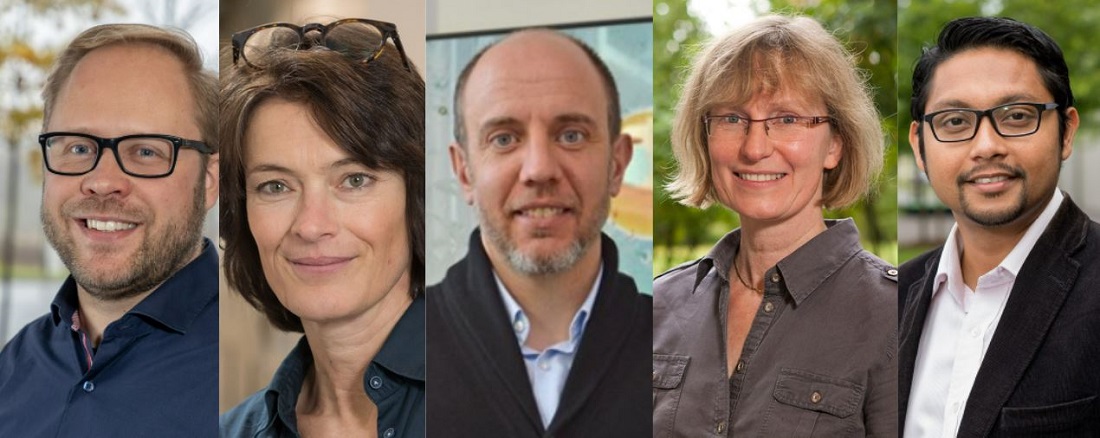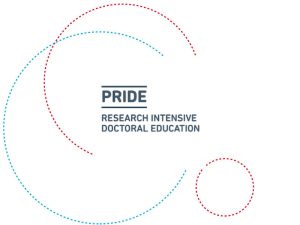Following the 2021 PRIDE call, the Luxembourg National Research Fund (FNR) has retained for funding two Doctoral Training Units (DTUs) working on cancer and immunology research. Within the DTUs, both coordinated by the Luxembourg Institute of Health (LIH), the grant will support the research work of 32 PhD candidates in total of which 10 will be working at the University of Luxembourg (Uni.lu). The interdisciplinary team includes principal investigators (PIs) from the Department of Life Sciences and Medicine (DLSM) as well as from the Department of Physics and Materials Science (DPhyMS).
PRIDE is the FNR’s main programme for funding doctoral research in Luxembourg. It supports the development of critical mass in key research areas by attracting excellent PhD candidates to Luxembourg and offering high quality research training. Under this programme, PhD grants are awarded to researchers cooperating on a coherent research and training programme.
Next Generation Immunoscience – NextImmune (phase II)
The NextImmune project aims to bridge classical immunology and big-data analysis science in one doctoral training and education environment.
The project will mainly explore two aspects of immune regulation, which can contribute to our overall understanding of the body’s immune response: Immunometabolism and Systems Immunology. By applying these concepts to various disease states, a holistic view of immunology from a molecular, cellular, and physiological viewpoint could be developed.
NextImmune2 aims to train future researchers at an interface between disciplines such as biology, computer science, mathematics and epidemiology, combining classical immunological research with the analysis of large data sets and metadata. This is particularly important for research related to such a complex multi-cellular and molecular network as the immune system, which, when deregulated, can lead to a range of devastating diseases.
The programme, under the coordination of Prof. Dirk Brenner (Uni.lu, LIH), hosts research groups from the Department of Infection and Immunity (DII) of the LIH, the Luxembourg Centre of Systems Biomedicine (LCSB) and the Department of Life Sciences and Medicine (DLSM) of the University of Luxembourg. The principal investigators for NextImmune from the University of Luxembourg are Prof. Thomas Sauter, Dr. Sabrina Brechard, and Dr. Elisabeth Letellier.

(From left to right) Prof. Thomas Sauter (DLSM), Dr. Sabrina Brechard (DLSM), and Dr. Elisabeth Letellier (DLSM)
The project, which received the very first PRIDE grant in 2015 for its initial phase, will be continuing with the multidisciplinary training program for PhD students in immunology research in Luxembourg, by building on the network and expertise generated in NextImmune1.
Cancer Biology – CANBIO (phase II)
The objective of the CANBIO project is to provide state-of-the-art training in cancer biology to next generation scientists covering molecular mechanisms of tumour progression, treatment resistance, biomarker discovery, therapeutic applications in pre-clinical disease models, as well as building computational disease models to facilitate innovative translational research.
Despite recent progress in drug development, cancer is incurable in many instances and remains one of the main challenges of modern-day medicine. One of the factors that contribute to its insidiousness is the ability to circumvent surveillance by the body’s immune system and to develop drug resistance mechanisms. The understanding of these “escape” strategies is therefore crucial in the fight against cancer. In this context, the Cancer Biology “CANBIO” PhD training programme was launched in 2016, with the aim of providing cutting-edge training in cancer biology to young scientists, thereby leading to the development of more effective therapies and fostering translational research.
CANBIO2 will specifically focus on the multiple distinct facets of a “tumor ecosystem” and proposes to identify and develop novel strategies that target tumor-host interactions.
A joint initiative of the Luxembourg Institute of Health, the University of Luxembourg and the Laboratoire National de Santé, the programme is coordinated by Prof. Simone Niclou (LIH) and co-coordinated by Dr. Elisabeth Letellier (DLSM; pictured above) and Johannes Meiser (LIH). The principal investigators from the University of Luxembourg are Prof. Thomas Sauter (pictured above), Dr. Lasse Sinkkonen, Prof. Dr. Stephanie Kreis, Dr. Elisabeth Letellier (pictured above), Prof. Dr. Paul Wilmes, Prof. Dr. Iris Behrmann (all DLSM) and Prof. Dr. Anupam Sengupta (DPhyMS).

(From left to right) Dr. Lasse Sinkkonen (DLSM), Prof. Dr. Stephanie Kreis (DLSM), Prof. Dr. Paul Wilmes (DLSM), Prof. Dr. Iris Behrmann (DLSM) and Prof. Dr. Anupam Sengupta (DPhyMS)
The project, which brings together eight Luxembourg-based research teams, first received the PRIDE grant in 2016. This year’s grants will fund phase II of the project which will take advantage of the network and expertise generated in CANBIO1, while incorporating novel scientific insight and addressing pertinent questions in the cancer field.
